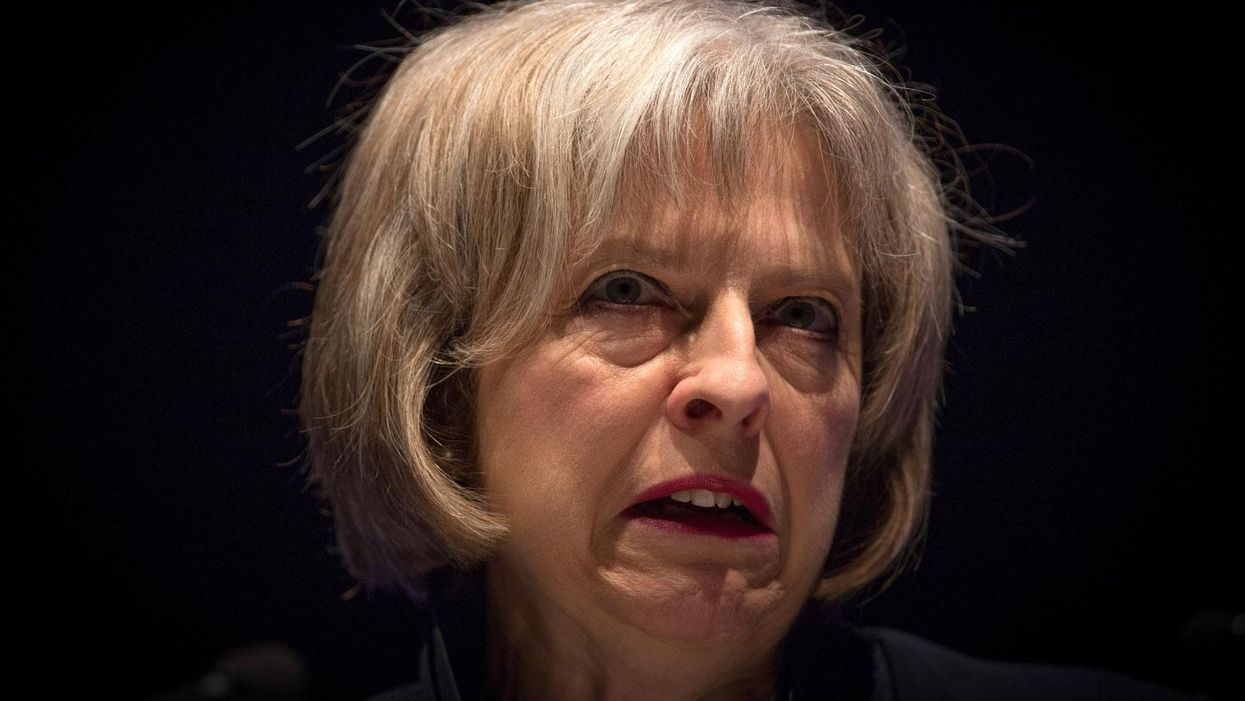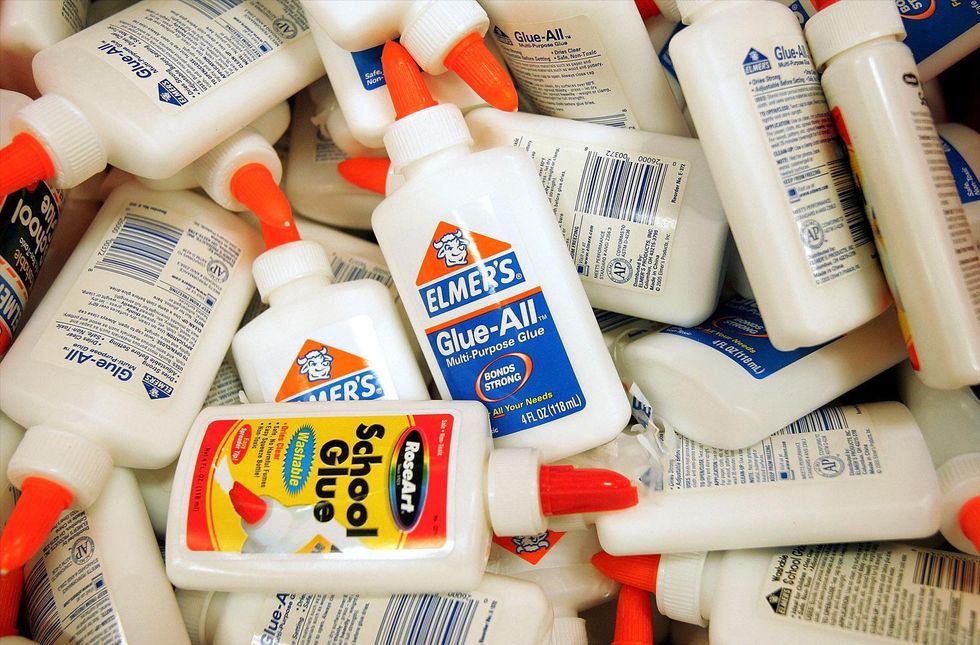News
Louis Dor
Jun 04, 2015

The Psychoactive Substances Bill 2015 is home secretary Theresa May's attempt to introduce a blanket ban on legal highs.
But soon after it’s introduction in the House of Lords, it dawned on people that it could cover, well, just about anything that has an effect upon the brain.
The bill states that it will:
Make it an offence to produce, supply, offer to supply, possess with intent to supply, import or export psychoactive substances; that is, any substance intended for human consumption that is capable of producing a psychoactive effect.
A psychoactive substance is defined under the bill as one that “if, by stimulating or depressing the person’s central nervous system, it affects the person’s mental functioning or emotional state".
Given that this criteria could include items such as petrol or caffeine, and that the bill calls for a maximum sentence of seven years in jail, a rethink may be needed.
The bill itself concedes this and proposes a list of exempted substances, including tobacco and coffee.
However this list still does not include a number of other substances used daily. We asked two experts to help point out just how many other holes the legislation has.
Solvents
There is already an industry group that looks at solvent misuse and there are very strict laws that prevent the selling of solvent-based products to children under the age of 16.
Dr Adam Winstock of the Institute of Psychiatry, Psychology & Neuroscience at King’s College London, told i100.co.uk:
There’s a whole group of solvents, whether it’s butane lighter fluid, paint thinners, petrol, paint, marker pens or glues – all of those things we know, when inhaled, can cause a significant altered state including confusion, delirium and hallucinations: absolutely they are psychoactive. They are also some of the most commonly-used and first-used drugs by young people.
Certainly a decade ago and I don’t know if it’s still the case, solvents were the most likely cause of death in 15-year-old boys, and so I don’t know how you’re suddenly going to regulate and ban petrol paint thinners, any sort of industrial solvent and a whole bunch of marker pens and other equipment.
Lynx adverts
Any product that has a placebo effect of psychoactivity could possibly be considered part of the Act, meaning that products marketed as such may be in violation of its terms. Watch out perfume or deodorant manufacturers.
Dr Winstock said:
Whether or not the law is going to have an effect on advertisers being able to suggest that their products induce some significant change in behaviour around people who wear their products – that’s an interesting thought. If an advertiser suggests that Lynx gets you laid, meaning that it produces a significant psychoactive effect in others, that might have a secondary effect in advertising standards.
Alcoholic substances
Section 6 of the bill refers to alcohol and alcoholic products, stating "alcohol means ethyl alcohol and alcoholic product means a) any product which contains alcohol and b) does not contain any psychoactive substance".
This causes a few problems as Danny Kushlick from Transform Drug Policy Foundation told us:
It is so contradictory because alcohol is a psychoactive substance. It’s just nuts within nuts.
Pheromones
Recent years have seen mass-market sales of pheromone products targeting men wishing to attract a partner, which could also come under the mandate of the bill.
Mr Kushlick said:
Pheromones were advertised a while ago for desperate young men to get a sexual partner, and you can buy animal pheromones online to help get pigs to mate with each other or other agricultural uses. They could possibly be affected.
Dr Winstock said:
Effectively you are inducing an altered mental state to make yourself more susceptible or attractive to other people. The olfactory part of your brain is one of the most ancient and powerful parts of your brain, so things that could induce a strong sense of smell, especially aphrodisiac smells can be classified.
Nasal sprays
Some nasal sprays could provide a psychoactive effect and be subject to the bill.
Dr Winstock told i100.co.uk:
There are certain preparations of naturally occurring hormones, such as intranasal oxytocin which is a naturally occurring hormone which does have some medicinal uses. I think that certainly induces a profound alteration in our emotions by promoting trust and empathy.
Plants
As Dr Winstock confirms, several naturally-occurring hallucinogens are currently legal, but because they are grown and not synthesised, it's unclear as to whether these are considered exempt foodstuffs or are considered under the bill.
Things like Blue lotus and Baby Hawaiian Woodrose seeds are interesting but I don’t know if they will fall under the bill. Baby Hawaiian Woodrose seeds are planted and if grown produce a vine. However, if you chew them and swallow them you gain an LSD-like effect.
That’s a naturally-occurring plant-based material which is uncertain as to whether it’s included. Others could include Salvia (sage), which you can still buy legally, fly agaric, certain hallucinogenic truffles, morning glory. I have a feeling all of those things would not currently be captured.
Nutmeg
http:/image/25304-1h9lx34.jpg "Chris Jackson/Getty Images"; style='width:100%;' border="0" alt="Nutmeg that was smelt by Camilla, Duchess of Cornwall and Prince Charles, Prince of Wales (not pictured) and described to them as an aphrodisiac, at Kizimbani Spice Plantation on 8 November 2011 in Zanzibar, Tanzania">
Dr Winstock points out:
Nutmeg is quite interesting. The government, I think, exempts foodstuffs, but nutmeg is actually quite a powerful hallucinogen - in overdose it can be quite dangerous.
Where do we stand with that, Home Office? Will there be mass arrests at Christmas?
So what's the verdict?
Mr Kushlick said:
The top line for us is that legal highs are a product of prohibition. This is a shenanigans over the blanket ban on top of a completely counterproductive blanket ban which created the marketplace in the first place. This is about as stupid as it gets.
The unwillingness of the goverment to explore the unintended consequences of the misuse of drugs act in the first place, means that we get this.
The Public Accounts Committee called on the Home Office to evaluate the drugs strategy because it's between two and four billion pounds worth of expenditure which is not evaluated, the Home Office came back after two years and said "We can't do that it's too hard. We can't tell you if any of that money is any use."
The problem with returning to the home office to deal with MPS is that they only have one tool, they were only ever going to apply another prohibition on top of the one they already had.
Dr Winstock said:
The Global Drugs Surveys 2012, 2013 and 2014, which looked at data for 2011, 2012 and 2013, saw a year-on-year decline in the use levels of research chemicals in the UK, spotting a decline in the use mephedrone two years before the national government did.
It hit it’s peak with mephedrone and it’s been declining ever since.
The government has also, as far as I know, not put in any measure as to how they’re going to determine whether or not their regulation is effective.
Ecstasy, cocaine and cannabis are all banned and all illegal – lots of people still use them.
What the government won’t do is engage in adult conversations with people who use drugs and treat them as sensible adults. That’s daft.
The other bit that no one talks about is that the government and the people who use drugs have a same area of common interest, which is that no one wants drugs that are really dangerous available and being used. That should be your starting point but it isn’t.
So, all in all, hardly a ringing endorsement. Back to the drawing board, we think/hope.
More: [The drugs that are far more deadly than cannabis]1
More: [These are the most popular drugs at music festivals]2
More: [What on earth was going on with George Osborne at PMQs?]3
More: [This video will make you hallucinate]4
The Conversation (0)















